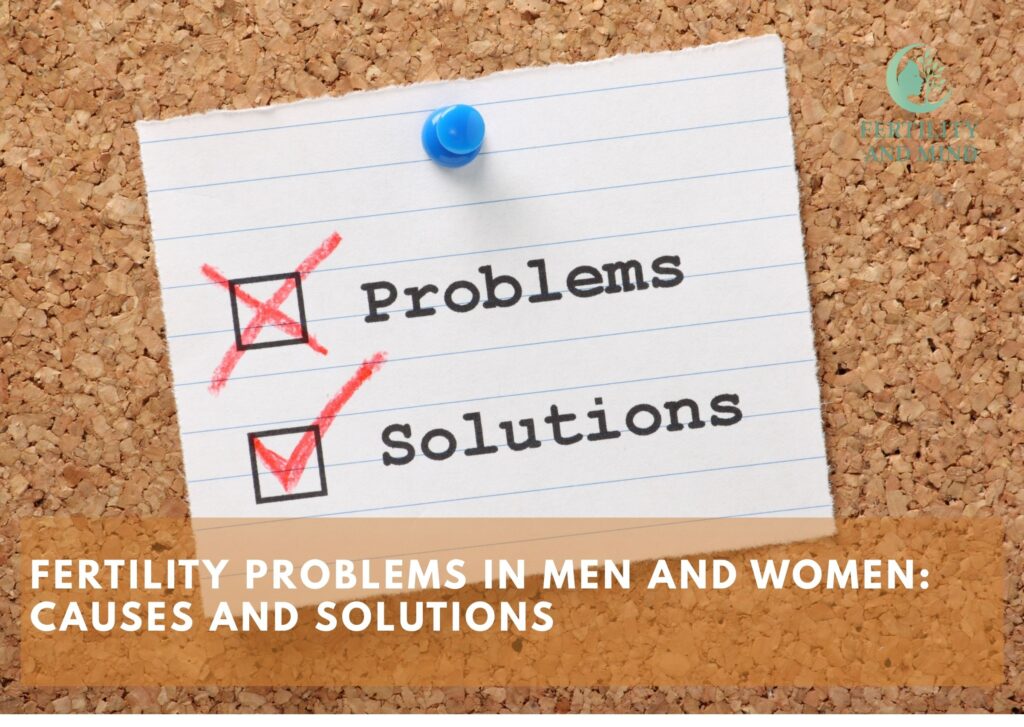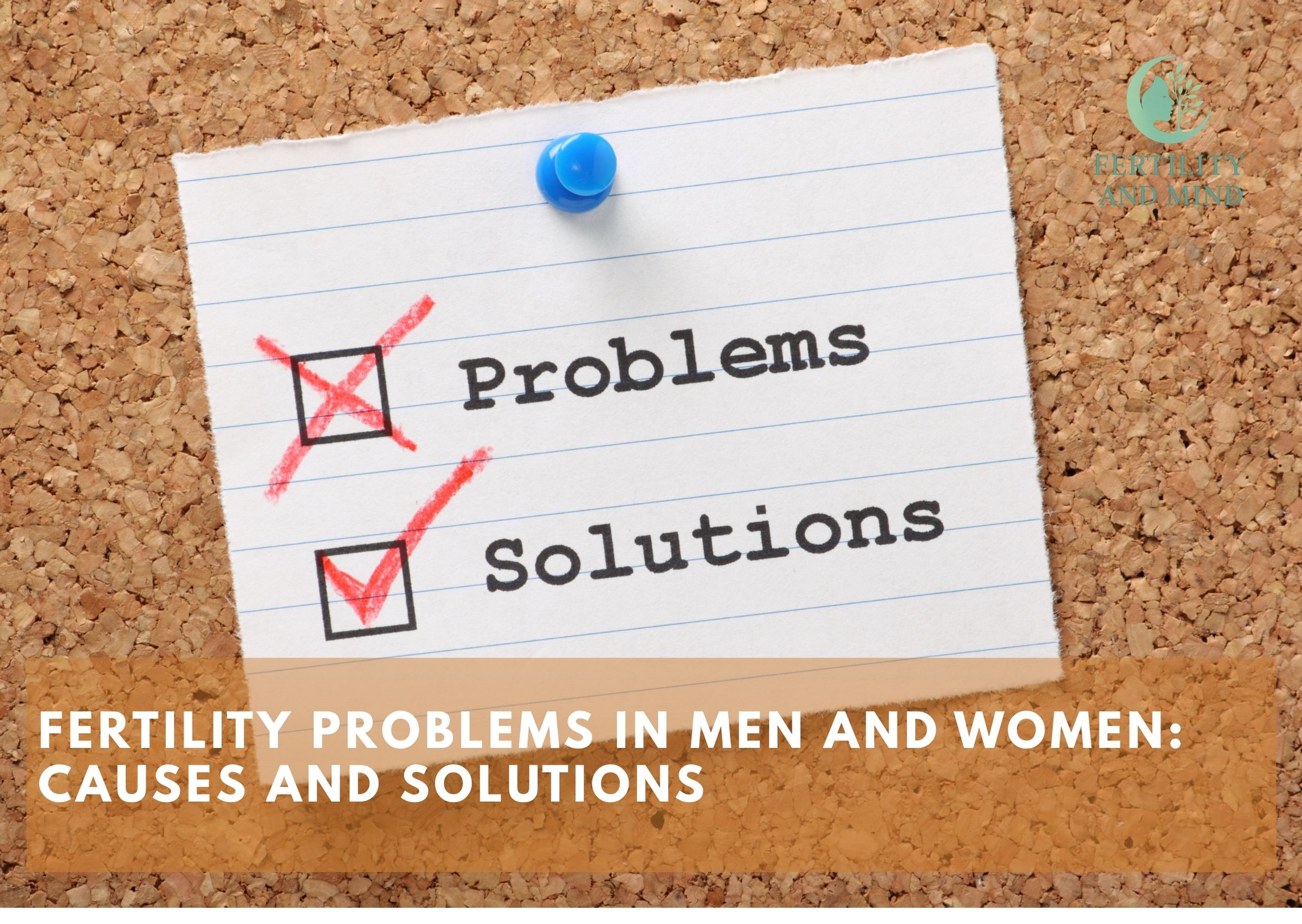
Infertility is more common than many people realize, affecting around 1 in 8 couples worldwide. When pregnancy doesn’t happen as quickly as expected, couples often feel isolated or blame themselves. But the truth is that fertility challenges are medical conditions, not personal failures and they affect both men and women almost equally.
Understanding the causes and exploring solutions can help couples feel informed, supported, and empowered in their fertility journey.
Understanding Fertility Challenges
What infertility really means
Doctors usually define infertility as the inability to conceive after 12 months of regular, unprotected sex (or after 6 months if the woman is over 35).
How common are fertility problems?
Fertility challenges affect about 10–15% of couples. In roughly one third of cases, the cause lies with the woman; in another third, with the man; and in the rest, both partners or unexplained factors play a role.
Causes of Infertility in Women
Ovulation disorders and hormonal imbalances
Conditions like PCOS (polycystic ovary syndrome) or thyroid problems can prevent regular ovulation, making it difficult to conceive.
Blocked fallopian tubes and endometriosis
Scarring from infections, surgery, or endometriosis can block eggs from meeting sperm. Endometriosis may also damage reproductive organs or affect egg quality.
Age-related fertility decline
Egg quantity and quality naturally decrease with age, particularly after age 35. This is one of the most common reasons women face fertility challenges.
Other medical conditions that affect fertility
Autoimmune disorders, diabetes, or untreated pelvic infections may also interfere with fertility.
Causes of Infertility in Men
Low sperm count and motility
A low number of sperm or sperm that don’t swim effectively can reduce the chances of fertilization.
Abnormal sperm shape (morphology)
Sperm with irregular shapes may struggle to penetrate an egg.
Hormonal problems and testicular issues
Hormonal imbalances, varicoceles (enlarged veins in the testicles), or genetic conditions can affect sperm production.
Lifestyle factors that impact sperm health
Smoking, excessive alcohol, obesity, poor diet, and chronic stress can all lower sperm quality.
Shared and Unexplained Infertility
When both partners contribute to infertility
Sometimes both partners have contributing factors for example, mild sperm issues combined with irregular ovulation.
What “unexplained infertility” means
In about 10–15% of cases, tests find no clear cause. While frustrating, unexplained infertility still has treatment options.
Emotional challenges of unclear diagnoses
“At first, I thought the problem was just mine. But after testing, we learned both of us had factors. Oddly, that gave us a sense of relief we were truly in this together, not alone.”
Solutions and Treatments for Fertility Problems
Lifestyle changes that support reproductive health
- Maintaining a healthy weight
- Quitting smoking and limiting alcohol
- Reducing stress through mindfulness or therapy
- Eating a balanced, nutrient rich diet
Medications and hormone therapy
Drugs like Clomid or hormone injections can help regulate ovulation or improve sperm production.
Surgical options when needed
Surgery may correct blocked fallopian tubes, remove fibroids, or repair varicoceles in men.
Assisted reproductive technologies: IUI, IVF, and beyond
- IUI (intrauterine insemination): placing sperm directly into the uterus.
- IVF (in vitro fertilization): fertilizing eggs in a lab and transferring embryos.
- ICSI (intracytoplasmic sperm injection): injecting a single sperm into an egg during IVF.
Living With Fertility Challenges
Personal reflections: facing diagnosis as a couple
“Getting the diagnosis was one of the hardest moments. But over time, I realized infertility doesn’t define me it’s just part of our journey. We learned to lean on each other more than ever.”
Managing anxiety and stress during treatments
Counseling, journaling, mindfulness, and support groups help many couples cope with the emotional weight of infertility.
Building resilience and seeking emotional support
Opening up to close friends, family, or professionals can reduce isolation. Fertility challenges are a medical condition, not a personal flaw.
Conclusion: Finding Hope and Solutions Together
Fertility problems in men and women can feel overwhelming, but they are more common than most realize and many have solutions. By understanding the causes, exploring treatment options, and leaning on emotional support, couples can navigate this journey with clarity and compassion.
The path may not always be easy, but with knowledge, patience, and resilience, hope remains alive.

